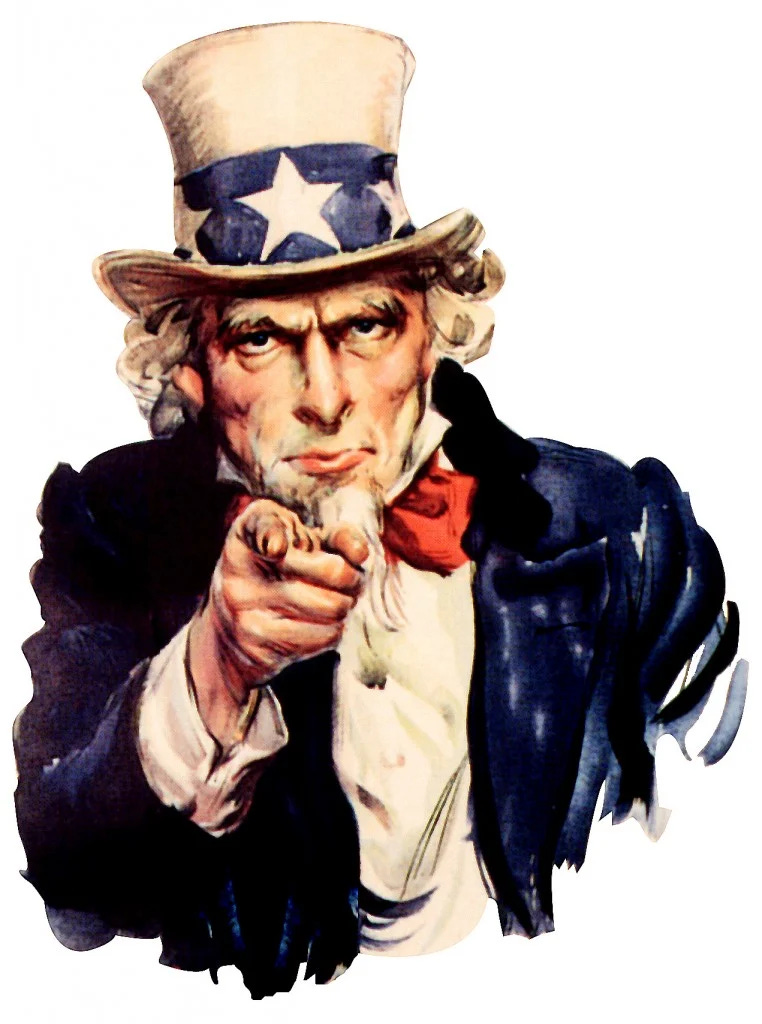The American left has largely ceded patriotism to the right. Here’s Freddie deBoer proudly declaring why:
Left-wing protestors don’t carry American flags because carrying the American flag is a symbol of support for the United States of America, its government and its actions, of condoning its project in whole or in part, and left-wing people (like me) can’t do that because the United States is a brutal and immoral actor in the world and has been longer than any of us have been alive. To wave the flag… would be to somehow suggest that the country the flag represents is worth celebrating, and it is not. It’s not for many reasons, the most direct and salient of which is that no country on earth has caused more wanton destruction, cruelty, and degradation of freedom and democracy than the United States, since the fall of the Third Reich. (Source)
For leftists interested in gaining political power, or, more gently, advancing their ideas in the public square, explicitly hating your own country is a colossally idiotic act of self-immolation. “Hey evil morons! F-you! Now please read my white paper on urban housing reform.” As rhetorical strategies go this must surely be the dumbest plan ever. Instead the left needs to reclaim patriotism, not as the unthinking endorsement of anything our country has ever done, but as a recognition of the better angels of our nature and a respect for the noble collective vision to which we aspire.
A government is not the country any more than a priesthood is the religion. When Martin Luther nailed his 95 theses to All Saints Church in Wittenberg, he aimed to start a debate, not a revolution. While he was deeply invested in reforming and improving the church, Luther never abandoned Christianity. He never lost his faith. You can criticize your country but keep your faith in it too—liberty and justice for all is a goal, not necessarily a description.
Sure, the whole idea of patriotism has had plenty of critics. One complaint is that there are better and worse countries, and if everyone loves their own the most, then most people must be wrong. Countries are flawed and imperfect and don’t deserve our love. So the problem with patriotism is that it leads to mistaken judgments.
That’s a pretty bad argument, one that misunderstands both love and the context of our judgments. I discuss the importance of context a lot more in Rating Beauty. But the idea that you should only love your country if it is flawless and better than all others is ludicrous. Should you love your children only if they are perfect kids? Your spouse only if she is better than every woman along every dimension?
James Boswell famously reports Samuel Johnson as saying, “Patriotism is the last refuge of a scoundrel.” Dr. Johnson’s immediate target was Prime Minister William Pitt, whom he regarded as double-dealing behind a façade of patriotism. Johnson was not criticizing the true love of one’s country, as Boswell goes on to emphasize: “He did not mean a real and generous love of our country, but that pretended patriotism which so many, in all ages and countries, have made a cloak for self-interest.” Johnson’s objection was to the sort of performative patriotism of someone wrapped in the flag, their truck covered in aggressive political bumper stickers declaring loyalty to their partisan views alone. It is the difference between righteousness and self-righteousness, where the latter permits any action under the guise of the former.
A more pointed complaint is that patriotic fervor is exactly what leads to catastrophe. Wilfred Owen, writing during the meat grinder of World War I, comes to mind immediately:
If you could hear, at every jolt, the blood
Come gargling from the froth-corrupted lungs,
Obscene as cancer, bitter as the cud
Of vile, incurable sores on innocent tongues,—
My friend, you would not tell with such high zest
To children ardent for some desperate glory,
The old Lie: Dulce et decorum est
Pro patria mori.
Horace’s claim that it is sweet and fitting to die pro patria, for the fatherland, is the ostensible basis of patriotism. That’s the target of Owen’s devastating critique.
The preceding argument is pointed in the wrong direction. Nationalism is the more militant “my country right or wrong” cousin of patriotism, and I think it’s nationalism that’s more properly seen as Owen’s real enemy. It is nationalism that treats dissent as sedition. It is nationalism that demands thoughtless fealty and veneration of the leaders. It is nationalism that sends young men to the killing fields of the Somme.
True patriotism stems from bonds of affection, the shared acknowledgment of our traditions and history, our monuments and institutions, our foundational myths and stories. In his 1937 book The Importance of Living, Lin YuTang wrote,
What is patriotism but love of the good things we ate in our childhood? … [T]he loyalty to Uncle Sam is the loyalty to doughnuts and ham and sweet potatoes and the loyalty to the German Vaterland is the loyalty to Pfannkuchen and Christmas Stollen. As for international understanding, I feel that macaroni has done more for our appreciation of Italy than Mussolini… [I]n food, as in death, we feel the essential brotherhood of mankind. (p. 46)
Even Nietzsche, a famous loner who once called himself a hermit, acknowledged the merit of “brotherhood on the basis of sharing food and drink together after the Hebrew-Arabic custom,” as the kind of naturally virtuous human interaction he thinks is so easily misunderstood (The Will to Power sec. 170).
I grew up in southeast Texas. Culturally it was a challenge for a bookish kid whose interest in the Dallas Cowboys did not extend beyond what was necessary for self-preservation. But it was a culinary corner bordered by Cajun cooking, Texas barbecue, and Tex-Mex, and I have fond memories of the food. My family would go to the gumbo cook-off in my hometown, with proud home cooks showing off their steaming vats filled with crab, shrimp, chicken, and probably alligator and rattlesnake too. There were plates piled high with boiled crawfish, as bright red as our necks in the sun, which the adults ate with a frosty can of Lone Star beer.
At home my mother would make shrimp étouffée at the end of the month when money was tight, because our freezer was full of free shrimp my father had harvested from the Gulf while crewing a friend’s boat. Once a year there was a church picnic at a state park and the men were there before dawn tending to huge steel drums converted to offset smokers and filled with briskets and barbecued chicken. The women brought potato salad, corn on the cob, cole slaw, and blackberry cobbler, and after the service we would eat and play horseshoes and run with the other kids.
This is America. Not the bloviators in Washington, not the haters. This is the true patriotism of the brotherhood of mankind, what the left and right should both embrace.
A huge brisket has been smoking over oak and hickory since 7:00pm last night, to be kept company by a salmon filet later today. This afternoon we’ll have a cooler full of beer and a pitcher of LiberTea and then our friends will come and sit on our deck. They will bring side dishes and desserts until every table (and belly) is full. There will be kids and dogs and music and bottle rockets. We will have some laughs and complain about our government in the way of free people everywhere. Aristotle wrote, “Every state is a community” (Politics, bk 1, 1252b). Our fellowship on Independence Day is patriotism in microcosm: our group of friends represents the larger one in which we are all collectively joined. May we all recognize our communion and all be patriots today.






See also Richard Rorty - "Does Being an American Give One a Moral Identity?”
“If one lives under a dictatorship, it is a bad thing to let one’s citizenship contribute to forming one’s moral identity. If one lives in a functioning constitutional democracy, I would argue, it is an unequivocally good thing. It amounts to being idealistic about one’s country, something citizens of a democracy ought to be. To abandon such idealism amounts to opting out, to becoming an ironic spectator of the nation rather than a participant in its political life.”
“There is no reason for us to deny that our country has been racist, sexist, homophobic, imperialist, and all the rest of it. But there is every reason to remember that it has also been capable of reforming itself, over and over again… The historical memories of those successes ought to be enough to make it possible for us to incorporate our American citizenship into our moral identities.”
“A government is not the country any more than a priesthood is the religion. When Martin Luther nailed his 95 theses to All Saints Church in Wittenberg, he aimed to start a debate, not a revolution. While he was deeply invested in reforming and improving the church, Luther never abandoned Christianity. He never lost his faith. You can criticize your country but keep your faith in it too—liberty and justice for all is a goal, not necessarily a description.” Gold. The greatest trick the devil ever pulled was convincing us that America was synonymous with DC, not “O beautiful for spacious skies
For amber waves of grain
For purple mountain majesties
Above the fruited plain!”